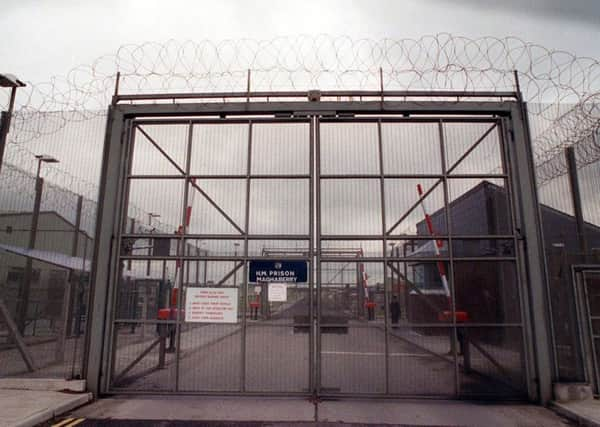Ben Lowry: Sinn Fein Maghaberry visit was retrograde step


Justifiable criticisms have been levelled at Sinn Fein and its riding of two horses (radical and moderate) since it accepted Stormont in 1998.
But in a specific and important respect the party has not seemed ambivalent – dissident terrorism. There was a deep freeze between Sinn Fein and dissidents.
Advertisement
Hide AdAdvertisement
Hide AdThe party has been surprisingly slow over the years to air dissident grievances (grievances that everyone, with the exception of a handful of politicians such as the dupes Mick Wallace TD and Éamon Ó Cuív TD, can see to be self-justifying propaganda).
The visible schism between SF and dissidents, perhaps more than anything else, sent out a subconscious signal to the wider community that the mainstream republican movement had made an unequivocal split with terror.
The visit to Maghaberry therefore was a depressingly retrograde step.
Arlene Foster is right to emphasise the pain and anguish that their visit has caused to Kate Carroll, whose husband Stephen was murdered by Brendan McConville and John Paul Wootton in 2009.
But it has alarming practical implications too.
Advertisement
Hide AdAdvertisement
Hide AdDespite the heroic work of the PSNI and the intelligence services to keep society safe from dissident terror, aspects of the criminal justice response to the dissident threat have given grounds for concern to anybody in the community who has been paying attention to how a host of paramilitary cases have been handled.
Prison terms for serious dissident offences are not merely inadequate, but on occasion shamefully so.
Bail is granted in situations in which it would be unthinkable in Great Britain.
The conviction rate itself hardly inspires confidence. While it is welcome that Wootton and McConville were convicted (albeit given inadequate tariffs– Wootton could be free eight years from now), no-one has been brought to justice for the murders at Omagh, Massereene and of Ronan Kerr and David Black.
Advertisement
Hide AdAdvertisement
Hide AdIt is clear that we need to examine a range of ways in which we can enhance and assist the crucial work of counter-terrorism.
If Sinn Fein block such reform, or even just oppose it in spirit, dissidents who are plotting murder will have an easier path to their goal.
• Compare and contrast.
A man this week was refused bail in a court case in which he is accused of exposing himself and performing a sexual act in the street in Belfast in front of women.
It is a grisly allegation and a very serious offence if proven.
Advertisement
Hide AdAdvertisement
Hide AdBut however gruesome and reprehensible such an act, how could it possibly result in bail being refused when there have been dissident republican terrorist cases, up to and including murder, in which those charged have been granted bail?
Ben Lowry (@BenLowry2) is News Letter deputy editor